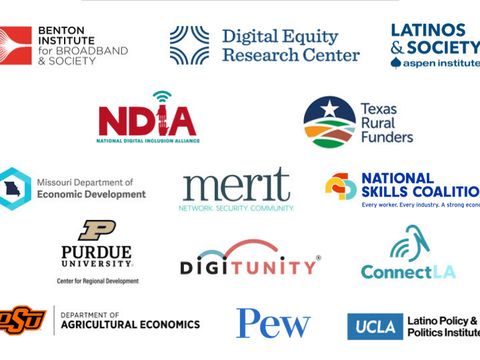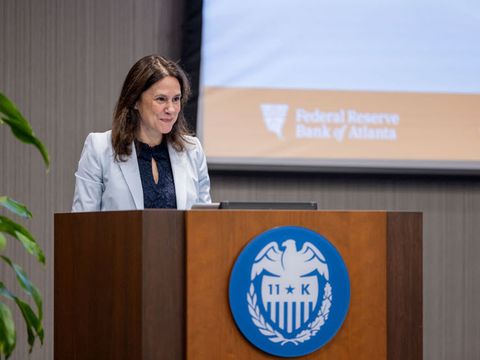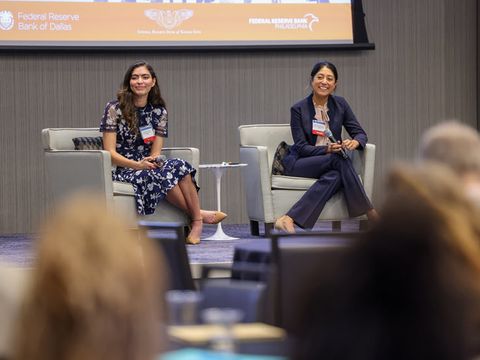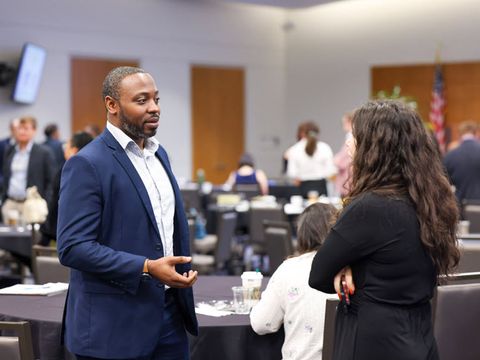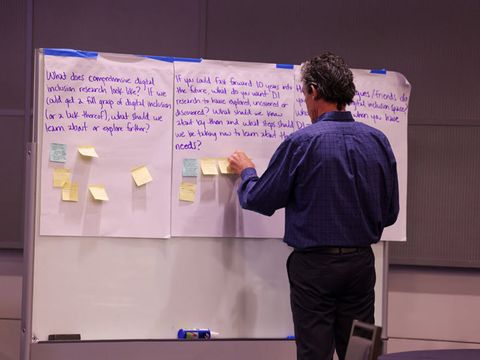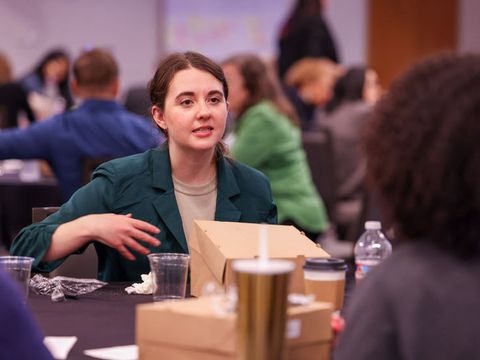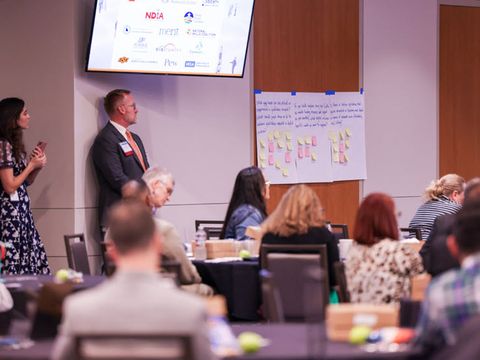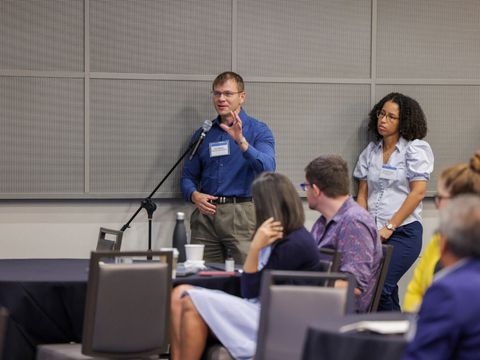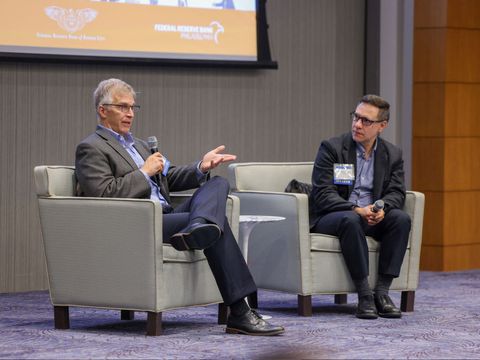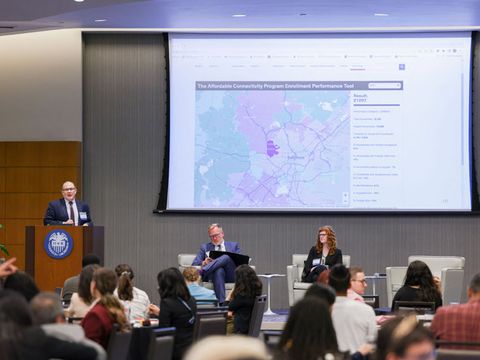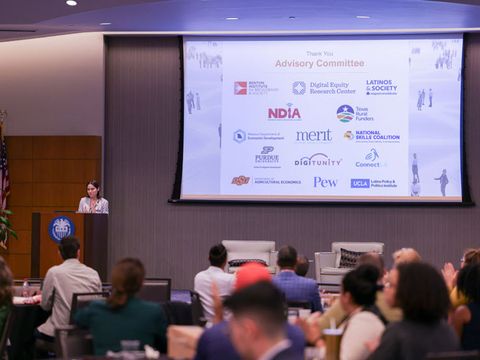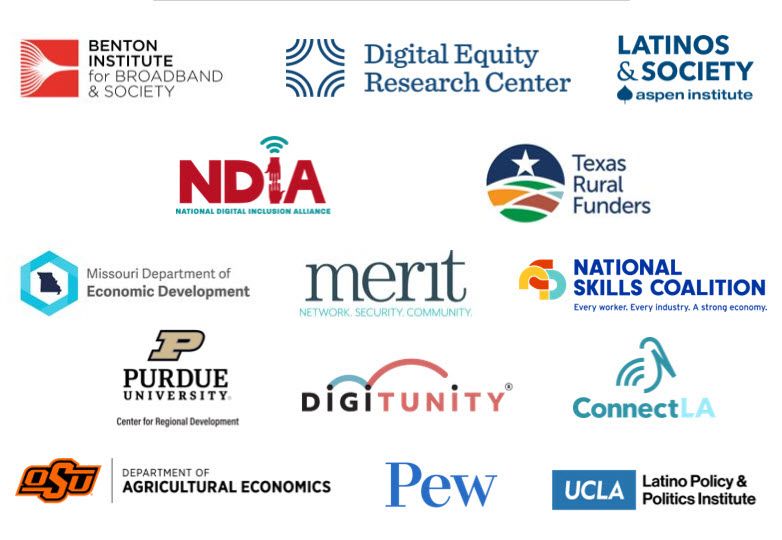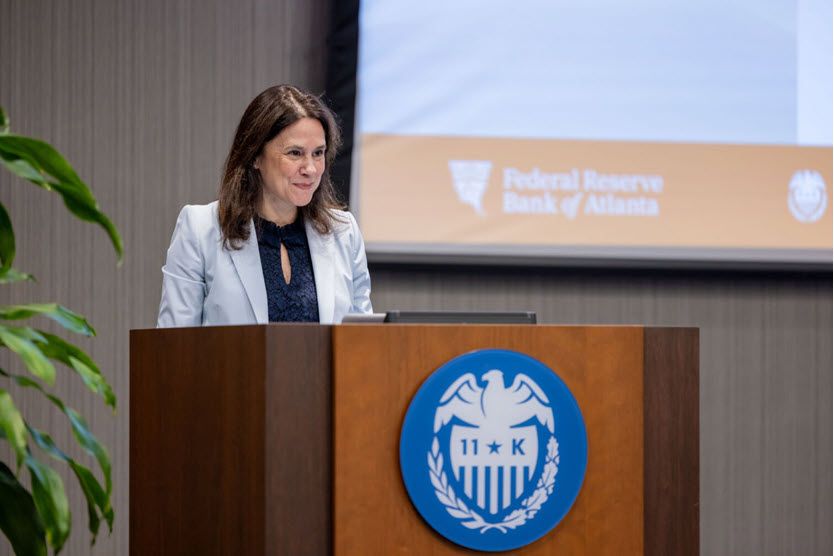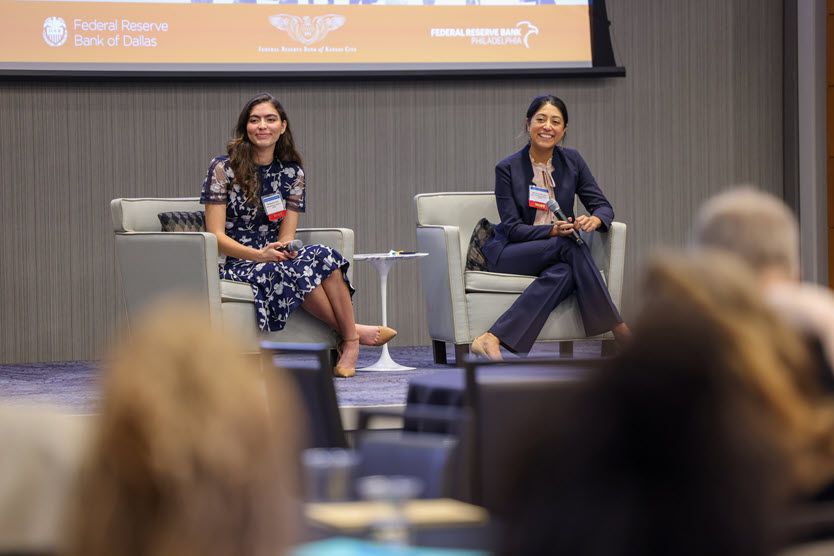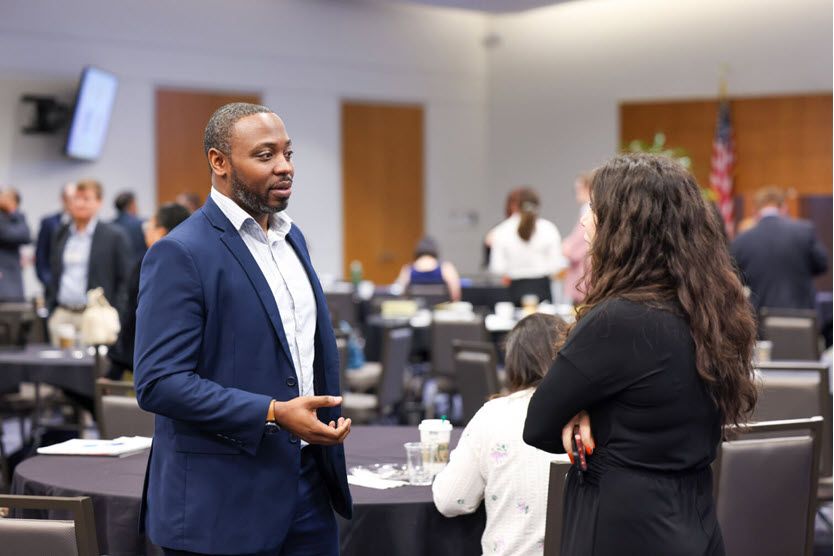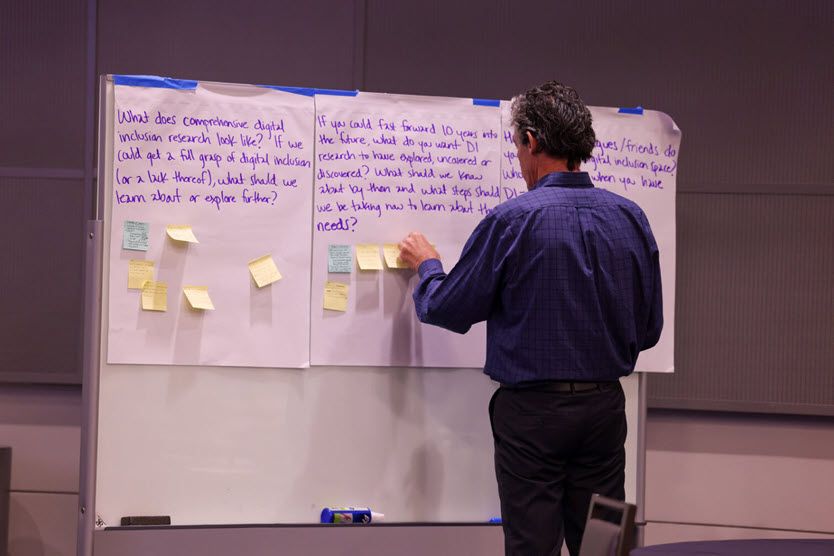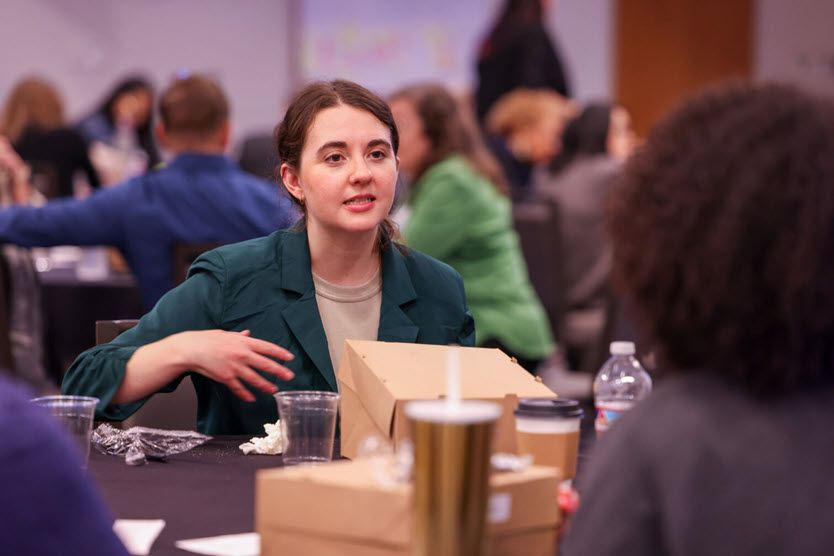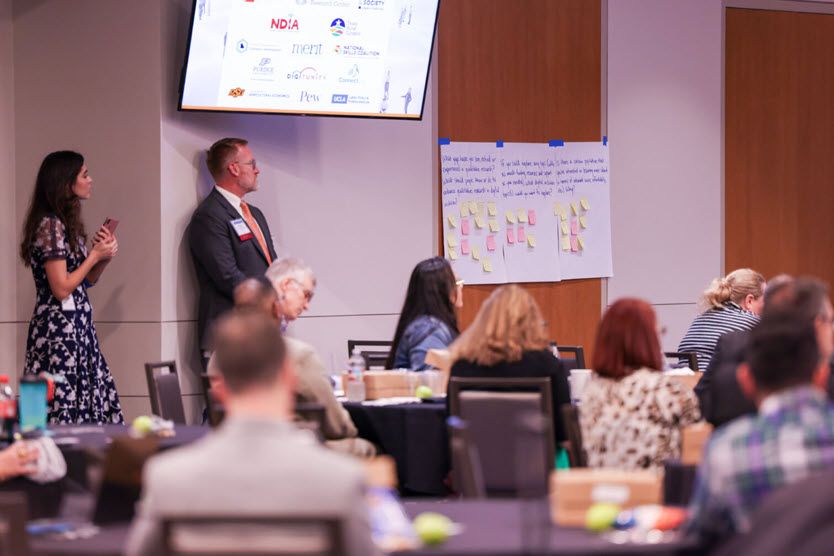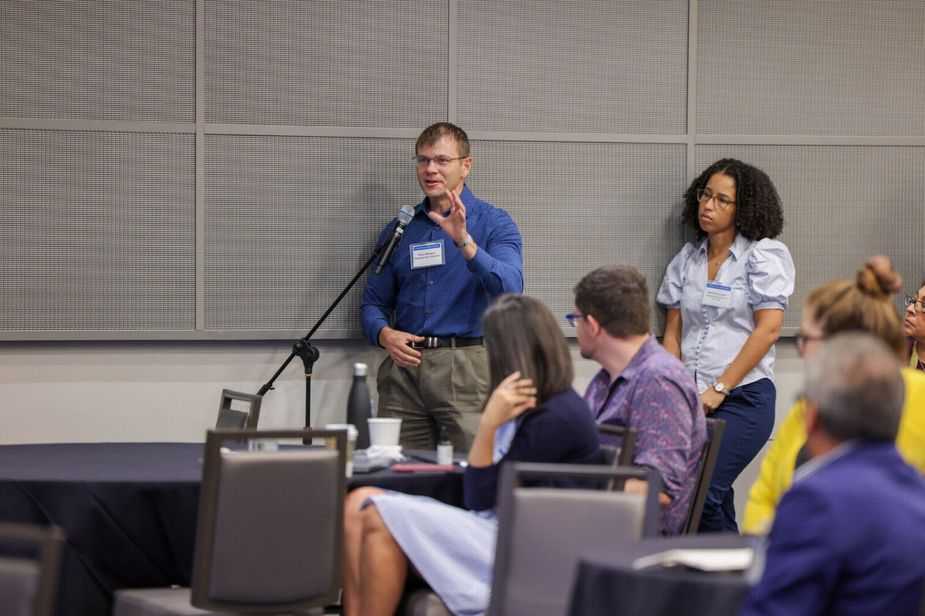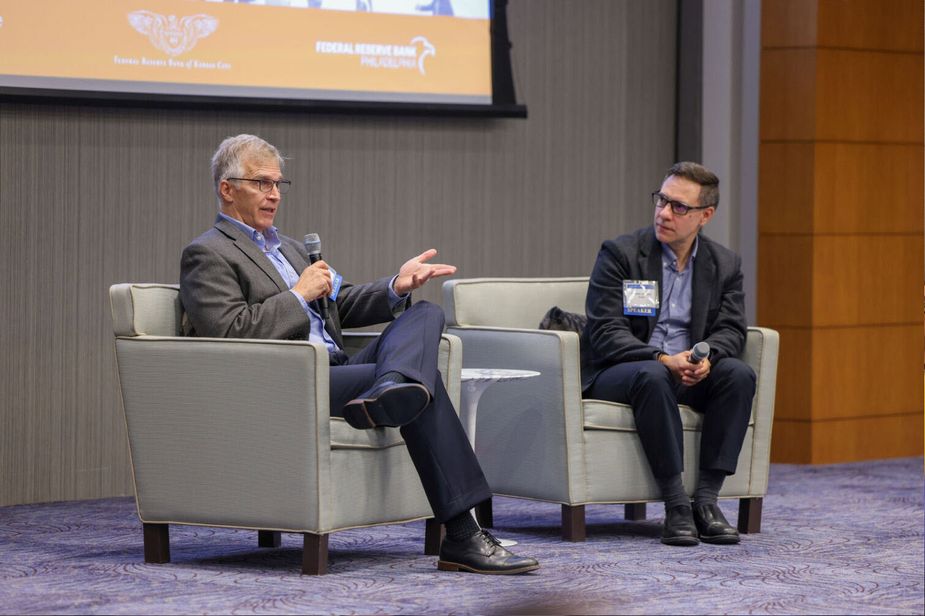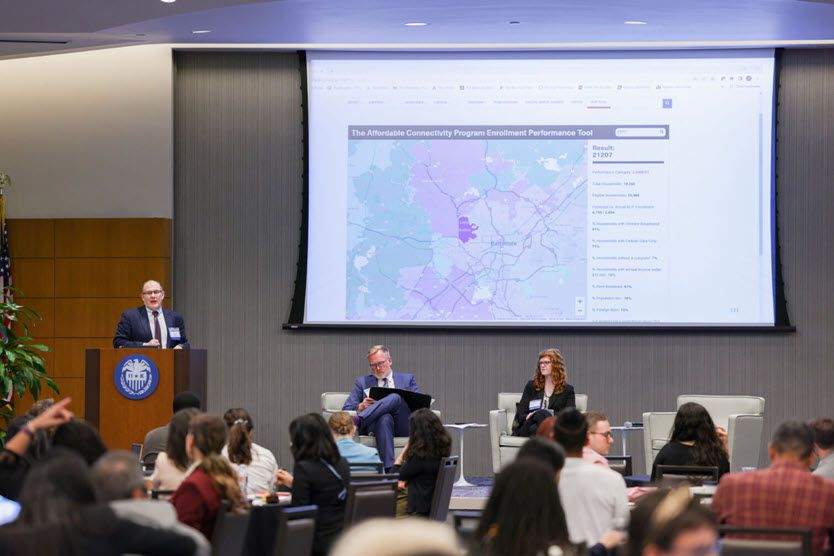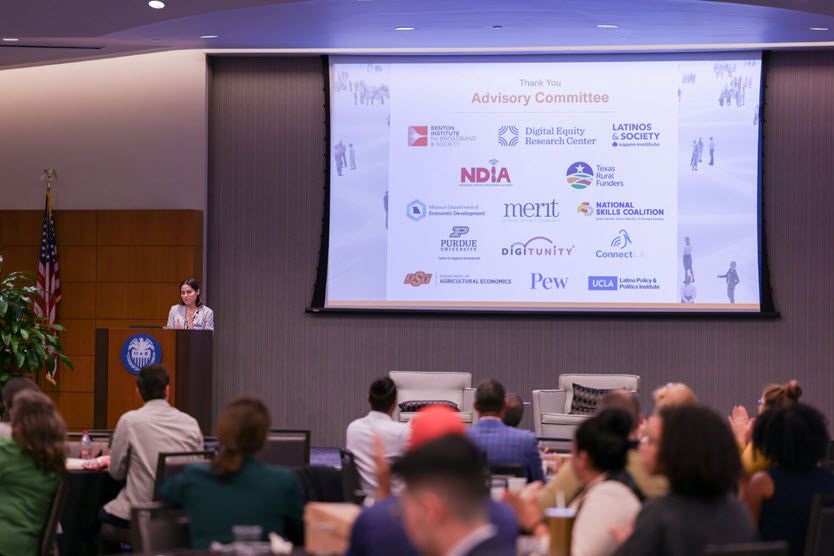The Kansas City Fed’s community development team joined peers from the Atlanta, Dallas and Philadelphia Feds to co-host the first-ever External LinkDigital Inclusion Research Forum (DIRF), held in Dallas October 12-13, 2023. The forum was more than a year in the making. The Banks held it after hearing from digital inclusion academics and researchers, practitioners, and policymakers.
Why did we do it?
The External LinkInfrastructure, Investments and Jobs Act (IIJA), passed in November 2021, includes $65 billion in new program funding for broadband expansion through the External LinkBroadband, Equity, Access and Deployment (BEAD) program. IIJA also included another $2.75 billion in funding for digital equity programs. State governments need to create five-year plans outlining how they would deploy the funds before they could access either bucket of funding.
Measuring outcomes would be a key component of the BEAD and digital equity grant programs. Throughout 2021-2022, the call by policymakers and practitioners for relevant research grew louder. While some digital inclusion research existed, it wasn’t always easy for non-academics to understand. There also appeared to be research gaps in some areas of digital inclusion, and interest from academics and researchers in better understanding digital inclusion issues.
Scroll to the bottom of this page to see photos from the event.
How did we go about it?
The four Reserve Banks formed a planning team. We wanted to ensure the forum addressed as many aspects of digital inclusion as possible, so we created an advisory committee with some of our existing community partners. We asked them what voices were missing from the committee, and who within their networks could fill those gaps. Our advisory committee grew to 20 members representing academics and researchers, digital inclusion practitioners, and state broadband and digital equity offices.
The advisory committee helped shape the forum objectives, which were to provide:
- A framework for existing research;
- Relevant context and appropriate applications for using existing research; and
- A forum for informing and advancing new research.
We then issued a public call for presentation proposals, which generated 45 responses from across the country and internationally. The planning team ranked each proposal according to the questions below.
Does the proposal:
- Present a framework for existing research?
- Provide relevant context and appropriate applications for existing research?
- Inform or advance new research?
- Inform gaps in existing literature or data?
- Present clear objectives and/or learning outcomes?
- Center equity and/or inclusion in the proposal?
- Present recent data?
- Demonstrate expertise in the field?
- Provide a diverse perspective?
After careful consideration, we selected 23 proposals for presentation. We wove the proposals into 18 sessions and combined them with several networking sessions to form our External Linkfinal agenda. Presentations from the sessions can be found linked in the agenda.
What were the results?
The forum attracted more than 160 attendees from 32 states. Roughly a third of those identified as academics and/or researchers, with another third identifying as practitioners. The remaining 31% of attendees were a combination of funders, policymakers and/or Federal Reserve staff. Nearly half of attendees had three years or less experience working in the field. Just 15% had ten or more years’ experience in digital inclusion.
Charts below prepared by Theresa Dunne, community development research analyst at the Federal Reserve Bank of Philadelphia.
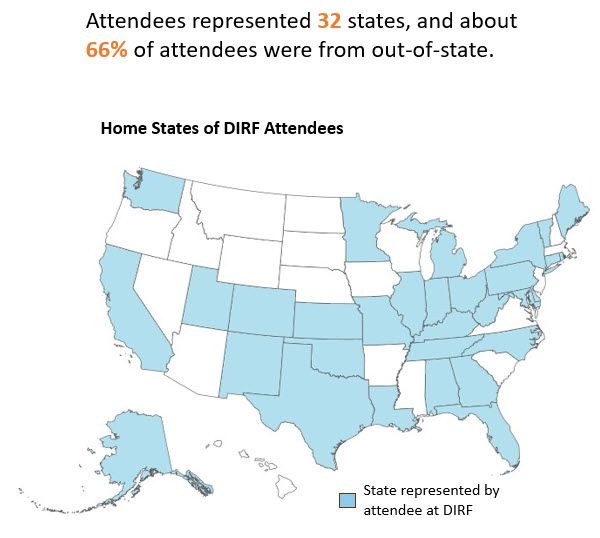
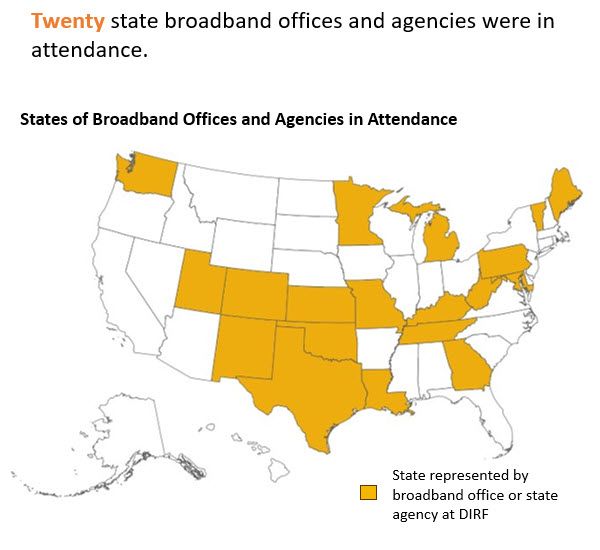
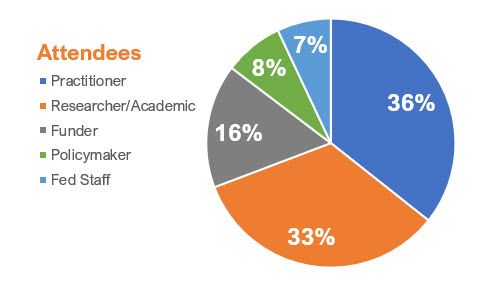
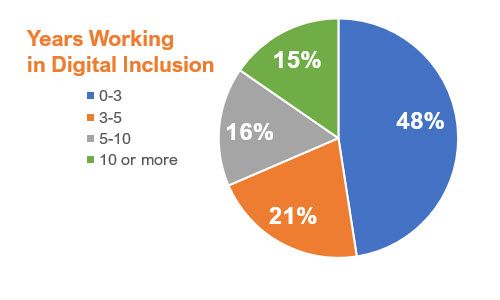
Participant feedback was positive. In a post-event survey we asked, “Based on what you learned, how likely are you to implement any of the knowledge shared?” All respondents said they were either likely or very likely to apply what they learned. All survey respondents said they expanded their professional network at the forum.
Participants also shared:
“The specificity of the sessions was great. Research on programs serving the digital inclusion needs of specific groups (e.g., Indigenous communities, refugee women, etc.) will be valuable going forward. The session on economic analyses of digital equity was also a valuable topic that is not often discussed in other digital inclusion settings. Finally, the session on engagement & qualitative research was fantastic - lots of good strategies to implement.”
“I had great networking sessions, so learned a lot from conversations with other researchers and practitioners that will directly improve my research.”
“I'm ~ 100 days into my new role at [digital inclusion organization]. Most of the content was new. I valued the professional networking/people and the relevant insights into how to talk about and evaluate digital equity challenges as well as gain an understanding of the work that being done elsewhere.”
What’s next?
Attendees expressed appreciation to the Federal Reserve Banks for creating the forum and when we will host the next one. We are exploring the possibility and timing of a future Digital Inclusion Research Forum and anticipate an announcement in early 2024.

